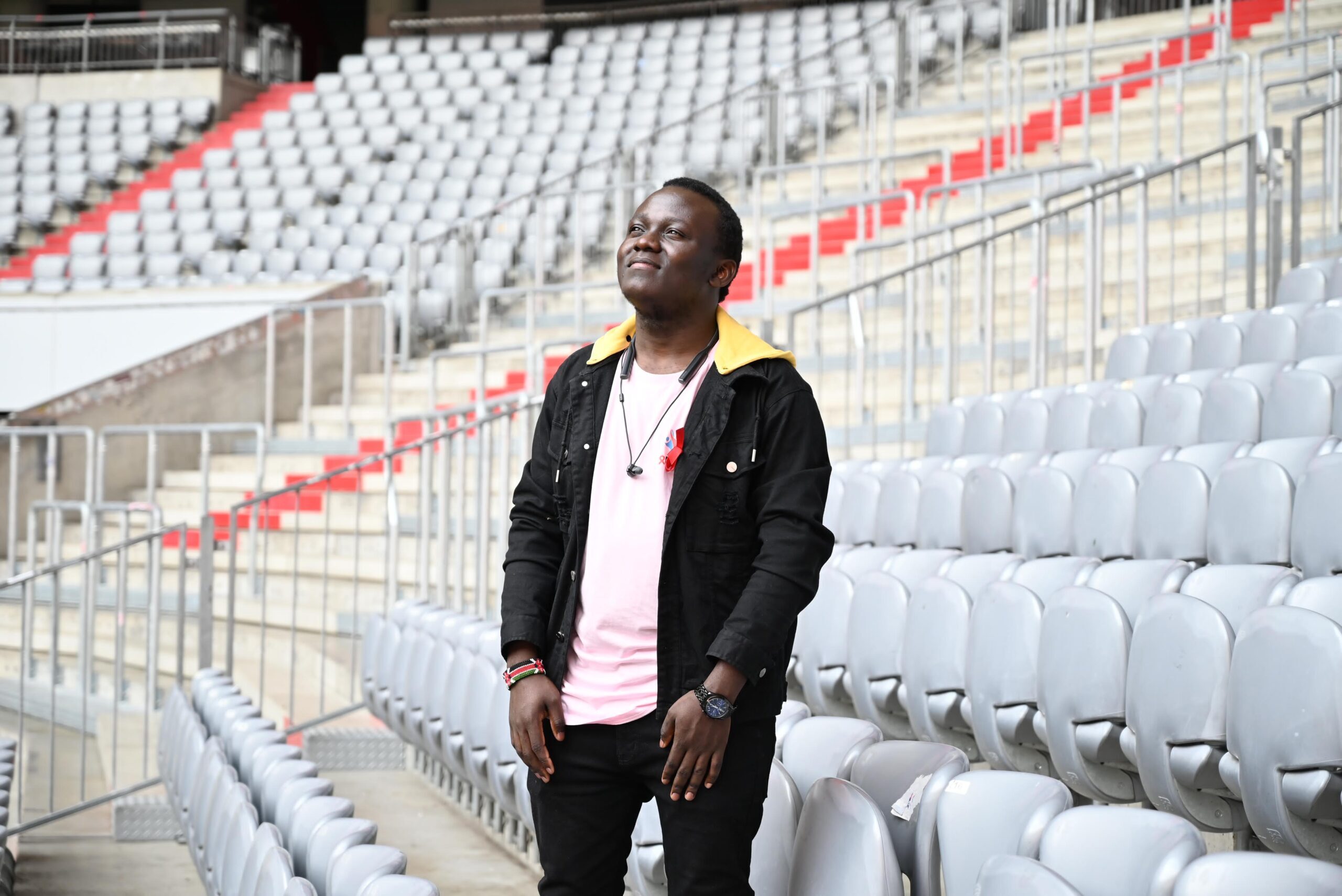“When I was still in primary school, one of my classmates was HIV-positive,” says Collins, a 16-year-old living in Homabay, Kenya. “Since everyone knew he was HIV-positive, people were talking about him. He felt stigma [because of his HIV status] and he rejected his treatment. He did not want to take the drugs.”
“Eventually he died,” continues Collins grimly, “…last year.”
Collins, who is also living with HIV, keeps his own status secret. He does not want to face the same rejection.

The one place at which Collins can talk openly about HIV and other hardships is with his peers at the Kandiege Health Center (supported by the Elizabeth Glaser Pediatric AIDS Foundation), where he picks up his medication. Once a week, Collins attends the Kandiege Ariel Club, a psychosocial support group with about two-dozen other adolescents living with HIV. Together, they learn about HIV—what it is, how to treat it, how to live with it. The group gives them space to share their experiences and emotions with peers who fully understand many of their difficulties and triumphs.


Most of the children are orphans—with one or both parents having perished from AIDS-related causes. One in four persons in this fishing community on the shore of Lake Victoria is living with HIV.
“I came to know about my HIV status from my grandmother,” says Collins. “When I was about 2 years old, my mother died. Then eventually, I fell sick. When I was about 5 years old, I was diagnosed as HIV-positive here at Kandiege. I continued to live with my grandmother until I reached Class 7 [age 12].
“Then my grandmother died, and I lived with my uncle and his wife. They are farmers—they plant crops like maize, beans, and ground nuts. They have tried their best, but they still have not reached good conditions [financially], so I have been sent home for lack of school fees. I have been away from school for some time.”
Collins would like to go to college and eventually become an electrical engineer, but as an orphan living with HIV, he is feeling dejected at the moment. His friendships at the Ariel Club are vital. Along with the stigma of living with HIV, other group members know what it is like to grow up without parents and are also experiencing financial insecurity.
Grace is a 15-year-old who was infected with HIV at the age of 8 when she was raped. “I suffered a lot,” says Grace. “I was afraid. I just kept quiet.” Grace secretly bore the trauma of her sexual assault until she was finally diagnosed with HIV at the age of 12 and received counseling at Kandiege.
Support at home is limited. Grace lives with her grandmother and four younger siblings. Her father died of pneumonia when she was a little girl and her mother left shortly after “for greener pastures” in Nairobi.
“My grandmother is very old. She just stays at home. I am the one who—after school—I look out for the family. Grandmother is not able to sustain our lives, so I fetch firewood and sell it to buy food. I am in school, but for the past two weeks I was sent home for lack of school fees.”

Grace is determined to make it back to school. “I want to be a journalist,” she says, “so that I can teach other girls through the media how to take care of themselves.”
The adolescents at the Ariel Club are taking their mutual support to the next level, working together to help relieve the financial stress that most experience.
“When we meet here, we usually start with prayers and discussion about HIV. We educate ourselves on how to take drugs,” says Collins. “Then we discuss issues like the raising of chicken or the growing of vegetables.”


On this day, Dennis, 15, is visiting from a neighboring support group. He has come to share their experience raising chickens. Each adolescent in his group was given a chicken. “They can use eggs for a balanced diet,” says Dennis. “Also they leave some [of the eggs] so that they will have chicks. Then they sell the rest.”
The Kandiege group tried chickens in the past, but lost many to disease, so they have now turned to agriculture. The group has just seeded a plot of land next to the health center and has assigned farming duties. “In this group, we have leaders. Someone comes every day to water the crops.” In addition, members of the group teach each other crafts and sell their handiwork, along with their crops, at the local market.

The adolescents in the Kandiege Ariel Club have faced stigma, loss, and financial hardship. The peer support group provides one space in their lives where they do not have to hide their HIV status and where they can share each other’s burdens.

The Kandiege Ariel Club was started under the Pamoja Project, funded through the Centers for Disease Control and Prevention (CDC). Pamoja means “together” in Kiswahili. In 2016, the CDC awarded EGPAF with a follow-on project named Timiza, which means “achieve.” The Elizabeth Glaser Pediatric AIDS Foundation continues to support the Kandiege Ariel Club, where adolescents are working together to achieve their goals.




